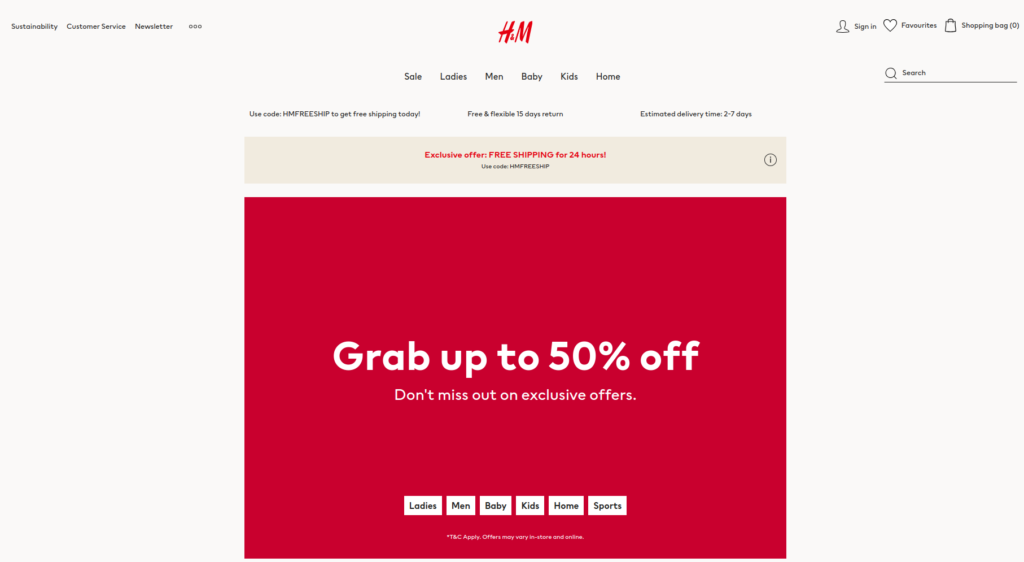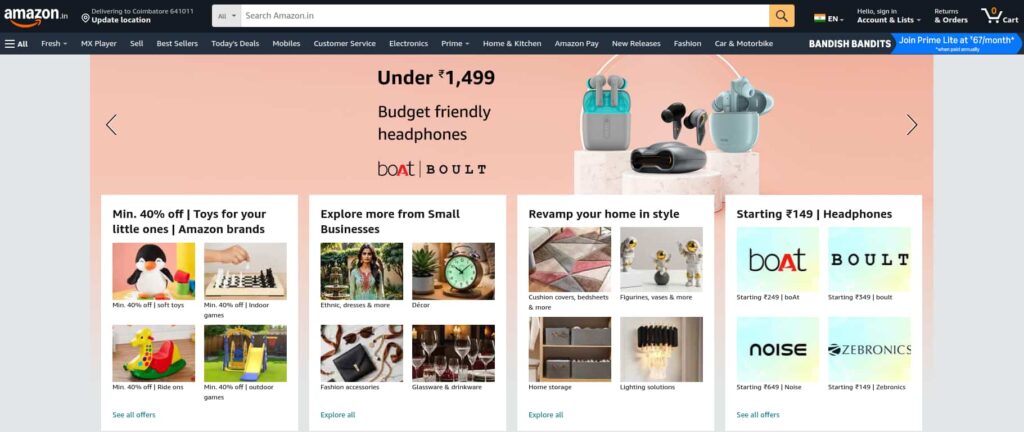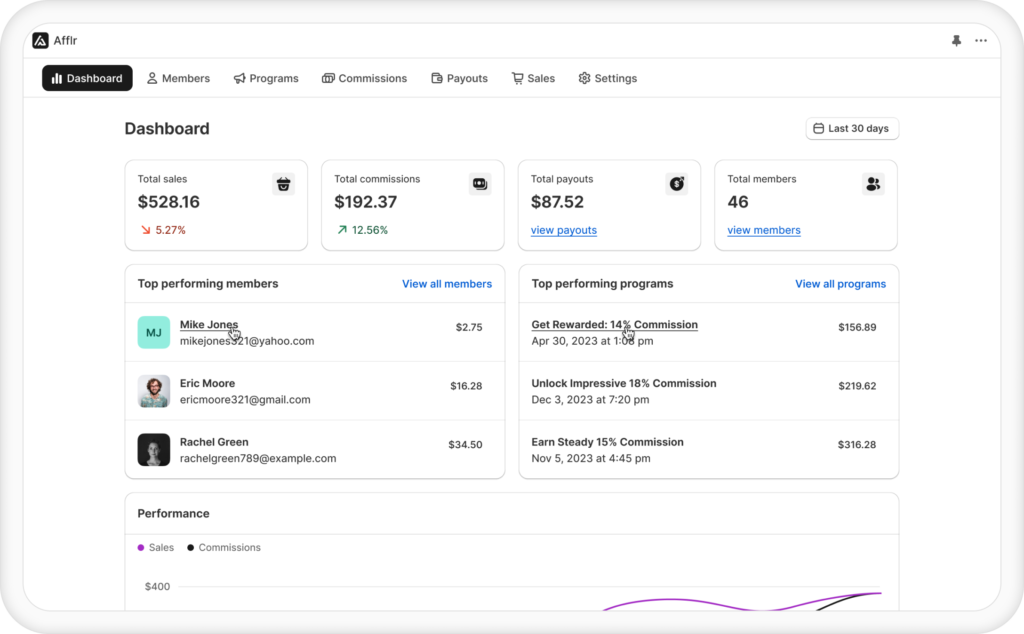Need help to choose between affiliate and influencer marketing? Both are powerful ways to grow your brand, but the right choice depends on your goals. Affiliate and influencer marketing offers two distinct approaches to driving sales and building brand awareness.
Affiliate marketing drives sales through channels like blogs, email, and social platforms, offering reliable revenue streams. Meanwhile, influencer marketing leverages trust and engagement through tailored strategies like reviews, endorsements, and product placements.
In this blog, you will learn how affiliate and influencer marketing work, how to monetize content, how to pick the best channel, and how to choose a marketing strategy that fits your business vision and audience.
Empower influencers with unique affiliate links—track their performance and boost your ROI with Afflr.
What is Influencer Marketing?
Influencer marketing is a strategy where brands partner with content creators. They will promote products to their engaged audience using trust and authenticity for results. You can use Shopify Ads App with influencers which is a smart move to grow your store’s traffic.
Key Features of Influencer Marketing
Influencer marketing has various benefits. You can check out our blog, A Guide to Shopify Influencer Marketing to know where to start.
Some of the key features of Influencer Marketing are;
Builds Authenticity:
- Influencer marketing creates a genuine connection between the brand and its audience.
- It does this through user-generated content and relatable storytelling.
- You can also safeguard your business, while also compiling with the law using the Shopify Age Verification App.
Engagement through Visual Storytelling:
- Influencers use compelling visuals and narratives to communicate a brand’s message.
- This can boost audience interaction and emotional connection.
Maximizes Brand Exposure:
- Influencers expand a brand’s reach through organic content.
- It resonates with their audience, thereby providing wider brand recognition and increased traffic.
Advantages to your business:
- Influencer marketing is perfect for store owners in visually-driven industries such as fashion, beauty, fitness, and lifestyle.
- This is especially effective when authenticity and emotional connection with the audience are key to the brand’s success
Level Up Your Word-of-Mouth Marketing. Use Afflr to connect with influencers and start influencer marketing.
What is Affiliate Marketing?
Affiliate marketing is a performance-based marketing approach. People promote products or services and earn a commission for every successful sale. High-earning affiliate niches offer the benefits of reaching the right target audience. Knowing the affiliate marketing strategies can help you build strong expertise.
Key Benefits of Affiliate Marketing
Affiliate Marketing has transformed businesses, offering top tactics to promote products.
Here are some key benefits of Affiliate Marketing:
Performance-Based Income:
- This marketing method enables store owners to make money based on sales, clicks, or leads.
- It is, therefore, a low-risk, high-reward strategy because one only pays for measurable results.
Target Audience Reach:
- Affiliates are well known for reaching niche audiences, meaning store owners can precisely target specific customer segments.
- You can use the best Affiliate Landing Pages to attract your target audience.
Scalable Growth:
- This is because of the natural incentive for increasing sales and the ability to grow a brand’s footprint by affiliates who work on a commission basis.
- The model is scalable, and it enables store owners to expand their businesses at a controlled cost.
If you’re new, check out our Quick Start Guide for actionable tips.
Advantages to your business:
- Affiliate marketing works well for SaaS, digital products, and e-commerce store owners.
- You can make use of Shopify Affiliate Marketing Apps to grow your business.
- The ideal business for scaling is where measurable results and trackable ROI can be expected.
What is the difference between Affiliate Marketing and Influencer Marketing?
Affiliate Marketing and Influencer Marketing has many differences. The decision between affiliate marketing and influencer marketing largely depends on your business objectives and target audience.
Some of the key differences are listed below;
1. Goal:
- Influencer marketing creates brand awareness.
- Affiliate marketing generates measurable sales.
2. Payment Model:
- Influencers are paid upfront via fixed fees or product sponsorships.
- Affiliates are paid per sale or action (commission-based).
3. Promotion Type:
- Authentic storytelling and relationship-building with their audience are the focus of influencers.
- Affiliates use very targeted promotions, like SEO or PPC ads, to bring conversions.
4. Audience:
- Influencers connect with loyal, niche followers.
- Affiliates target a broader, intent-driven audience searching for specific solutions.
5. Measuring Success:
- Engagement metrics for influencer marketing include likes, shares, and comments to measure success.
- Affiliate marketing tracks performance based on clicks, conversions, and sales.
6. Content:
- Influencers make organic branded content with the brand.
- Affiliates focus on SEO-driven content like blog posts, product reviews, and paid ads.
7. Cost-Effectiveness:
- Influencer marketing is expensive and provides high upfront costs for collaboration.
- Affiliate marketing is inexpensive since it pays for performance.
8. Scalability:
- Influencer marketing is relatively more limited, and there are usually a few influencers.
- Affiliate marketing can scale very fast with a large number of affiliates.
9. Engagement:
- Direct interaction with the target audience is facilitated through influencer marketing.
- Affiliate marketing is all about conversion and sales generation.
10. Longevity:
- Influencer marketing is always short-term, and this is usually a campaign in terms of promotions.
- Affiliate marketing is long-term, and usually, there are affiliate relationships that are maintained.
11. Content Control:
- Influencer marketing is less controlled by the brand and is dependent on the influencer’s style.
- Affiliate marketing provides brands with complete content and messaging ownership.
12. Trust Factor:
- Influencers use their brand and authenticity to create trust among their audience.
- Affiliates usually establish trust based on their knowledge of the products or the content they share.
13. Brand Fit:
- Influencers work with brands whose values and personalities fit well with theirs.
- Affiliates are more concerned with marketing products that match the needs of their audience.
14. Revenue Model:
- Influencers earn a fixed fee or commission on the contract.
- Affiliate marketing earns only through a commission, as per sales or leads they are creating.
15. Flexibility:
- Influencer Marketing is highly flexible, as campaigns can adapt to the influencer’s taste, audience, and platform.
- Affiliate marketing is standardized. Meaning that affiliates only follow the rigid promotional rules.
Knowing these differences between Influencer and Affiliate Marketing, brands can choose the proper strategy based on awareness of their marketing objectives or sales generation.
You can grow your business effectively by crafting tactics based on the differences between Affiliate Marketing and Influencer Marketing. Also understanding the differences between influencer and affiliate marketing is crucial to choosing the right strategy for your brand.
Strategies to Combine Influencer Marketing and Affiliate Marketing
Influencer marketing and affiliate marketing separately have many advantages. But when combined, the potential of influencer marketing and affiliate marketing can be used to deliver even greater outcomes.
Affiliate and influencer marketing can both be highly effective, but they work best when tailored to your specific marketing goals. Influencer marketing and affiliate marketing can complement each other when combined, creating a powerful dual strategy. Some of the important strategies include:
- Maximize Revenue: Turn influencer traffic into measurable sales through affiliate links. Focus on converting engagement into profits.
- Top Channels: Use influencers to promote affiliate links within their networks for better reach.
- Incentivize Influencers: Offer a mix of upfront payments and affiliate commissions. It is a hybrid model that encourages the influencer to produce high-converting content.
- Optimize Conversions: Offer high-performing affiliate links and exclusive offers to maximize effectiveness among influencers.
- Use Social Media Platforms: Utilize Instagram, YouTube, and TikTok to drive traffic through influencer content to affiliate links.
- Drive Traffic: Use both strategies in tandem, utilizing influencer engagement to boost traffic and conversions.
- Cross-Promote Offers: Create engaging content that drives followers to affiliate links, boosting traffic across platforms.
- User-Generated Content: Encourage influencers to create more content, helping affiliates expand their reach.
- Collaborate on Campaigns: Work with influencers on campaigns that combine both strategies to reach a larger population.
- Reviews and Testimonials: Use influencer reviews on your promotions to establish credibility and increase conversions.
- Exclusive Programs: Provide special commissions to affiliates in your affiliate programs to encourage stronger promotion.
- Seasonal Campaigns: Implement limited-time offers with your influencers to create urgency and make sales.
- Email Marketing: Merge influencer email lists with affiliate campaigns to widen your audience effectively.
Both Affiliate marketing and influencer marketing are transformative strategies for today’s businesses.
Case Studies and examples
Influencer Marketing Case Study: H&M
Campaign Objective: Build brand awareness and desirability for H&M during the holiday season.
Strategy
- H&M partnered with celebrity influencers to create authentic, engaging content that resonated with their audiences.
- The campaign leveraged each influencer’s unique personality and social presence to produce tailored content.
Execution
- H&M collaborated with four celebrity influencers.
- Each influencer developed a 10-second teaser clip and a full 1-minute ad to promote H&M’s holiday outfits.
- 24 posts were shared on Twitter, Facebook, and Instagram.
- Each post included the hashtag #hm and a direct link to H&M’s holiday collection.
Outcome
- H&M successfully reached more than 12 million consumers through this campaign.
- Leveraging cross-channel promotions worked out and maximized reach and engagement.
- This strategy enhanced H&M’s brand awareness and desirability, driving significant interest in its holiday line.

Affiliate Marketing Case Study: Amazon
Campaign goal: To generate sales using performance-based marketing
Strategy
- Amazon’s Affiliate Program, also known as Amazon Associates, is one of the world’s most successful affiliate marketing programs.
- Amazon allows affiliates to promote products from their huge catalog and earn a commission on every sale or action generated through their referral links.
Execution
- An affiliate link was added to every product on Amazon. Thus, if a customer purchases via that link, the affiliate acquires a percentage of its sales price.
Outcome
- Amazon’s affiliate program has exponentially grown and expanded through thousands and millions of affiliates around the world.
- Amazon earned about $7.5 billion in affiliate commissions.
- The model is performance-based, so only when a sale occurs, do affiliates make money, which is why the model is both attractive for brands and affiliates.
Whether you choose affiliate or influencer marketing, both have the potential to boost your brand’s visibility and revenue.

Drive Affiliate Sign-Ups Effortlessly! Create captivating landing pages with Afflr to boost enrollment.
Conclusion
In this blog, you have seen the differences and strategies of combining both affiliate marketing and influencer marketing to get maximum impact.
Applying these tactics can make you boost your brand’s reach and conversions. The conclusion is that both influencer and affiliate marketing can be finalized as the best strategies depending on your goals.
Further Reading
- 10 Best Shopify Affiliate Marketing Apps in 2024
- 10 High-Earning Affiliate Marketing Niches in 2024
- How to Create an Affiliate Program in Your Shopify Store
- 9 Types of Affiliate Commission Models in Affiliate Marketing
Frequently Asked Question
No, these are entirely different strategies that are based upon different focuses; affiliate marketing usually depends on performance-based sales, while the focus is on influencer marketing using the influence to create brands and their respective trust along with their endorses’ recommendations.
Yes, many influencers use both affiliate marketing and influencer marketing by promoting products through affiliate links, thus using the audience and earning commissions through sales.
Affiliate marketing and influencer marketing are both parts of digital marketing. Affiliate marketing is a part of performance marketing that uses affiliates to push a product for a certain commission for each sale or lead.
Amazon influencers and affiliates are distinct but fall under affiliate marketing and influencer marketing categories. Influencers make content to recommend products, whereas affiliate marketers use broader platforms, which generate sales and enable them to earn their revenue.
